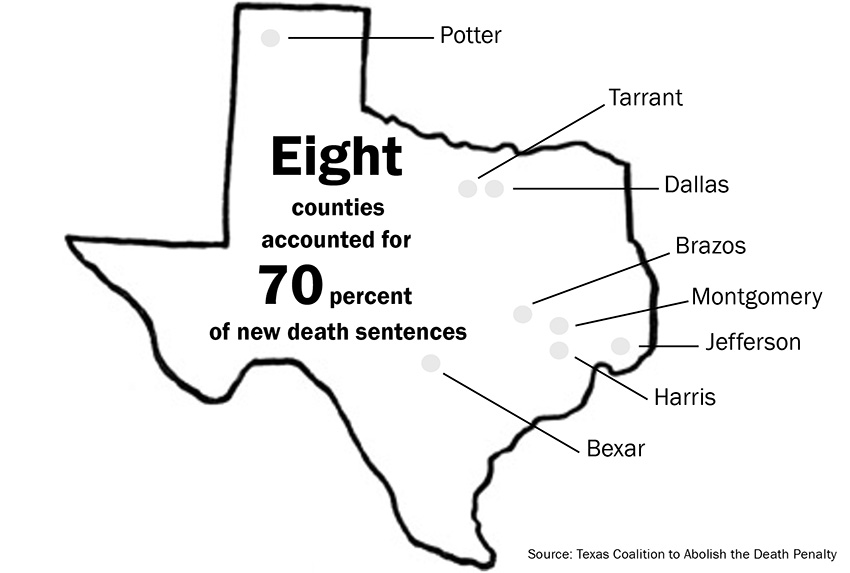Capital trials sound like the height of democracy, being respectful yet high stakes contests. Frankly, they aren’t. It is not uncommon for lawyers, jurors and even judges to fall asleep. This is a system where paranoid schizophrenics are allowed to represent themselves, subpoenaing Jesus Christ himself. Just last week, a man with bipolar disorder was issued a stay hours before his execution when an appeals court ruled he hadn’t been adequately represented.
In a literal life and death scenario, these realities don’t feel like justice.
And for criminals with serious mental illness, the state needs to tighten up its arbitrary handling of mental health cases, if not abolish the death penalty for these defendants altogether.
Many death penalty case issues are due to bad lawyering. When death sentences increase from just a quarter of the national average to the national average, error rates more than triple. But problems also occur on the other side of the bench — mentally ill defendants don’t always make the best clients. Capital cases can go through four or five sets of defense lawyers as the client exhausts his appeals and is entitled to new counsel. If a defendant cannot articulate past problems with his case, it is difficult to find compelling arguments for an appeal, keeping them on death row.
“It is very hard for them, if not impossible for them to help their lawyers,” said Jim Marcus, co-director of the Capital Punishment clinic at the UT School of Law. “Their symptoms get in the way of their understanding of the world.”
Texas has the most active execution chamber in the nation, but its sentencing is by no means uniform. If Harris County were a state, it would have the most executions in the country (excluding Texas of course). Your chances of execution have less to do with your crime than where you are prosecuted.
Harris County jail has another claim to fame — it’s the state’s largest mental health care provider.
“The fact that the criminal justice system has been ineffective in preventing that from happening, it’s appalling,” said Kathryn Kase, executive director of Texas Defender Service.
Even with such high levels of mental illness in the justice system, the verdict of not-guilty by reason of insanity is rarely used. Many jurors and judges still feel inclined to think that someone with mental illness is “faking it,” even when defendants have been considered mentally impaired since childhood, or in the case of Andre Thomas, rip out their own eyes.
“For lawyers who are litigating these cases, who represent someone who is seriously mentally ill, you really don’t want to put [mental illness] in front of the jury if you don’t have to,” Kase said. “I think that over time there is an emerging consensus that these folks should not be facing the death penalty.”
A 2014 Public Policy Research poll found that Americans did not favor using the death penalty on mentally ill individuals on a 2-to-1 margin. Life in prison without parole is just as effective as a death sentence at protecting the public from a mentally ill criminal, and saves $1.2 million in the process. If we spent even half of this money on early detection and treatment of mental illness, hundreds of potential victim’s lives would be saved.
If the state insists on using the death penalty on the mentally ill, we can at least make sure that process is treated with the gravity it deserves. Cases should be taken to court slowly, giving time to assess the full impact of mental illness on a defendant, who should then be ensured reasonable counsel. Anything less could hardly be considered justice.
Hallas is a Plan II freshman from Allen. She is a senior columnist. Follow her on Twitter @LauraHallas.





















